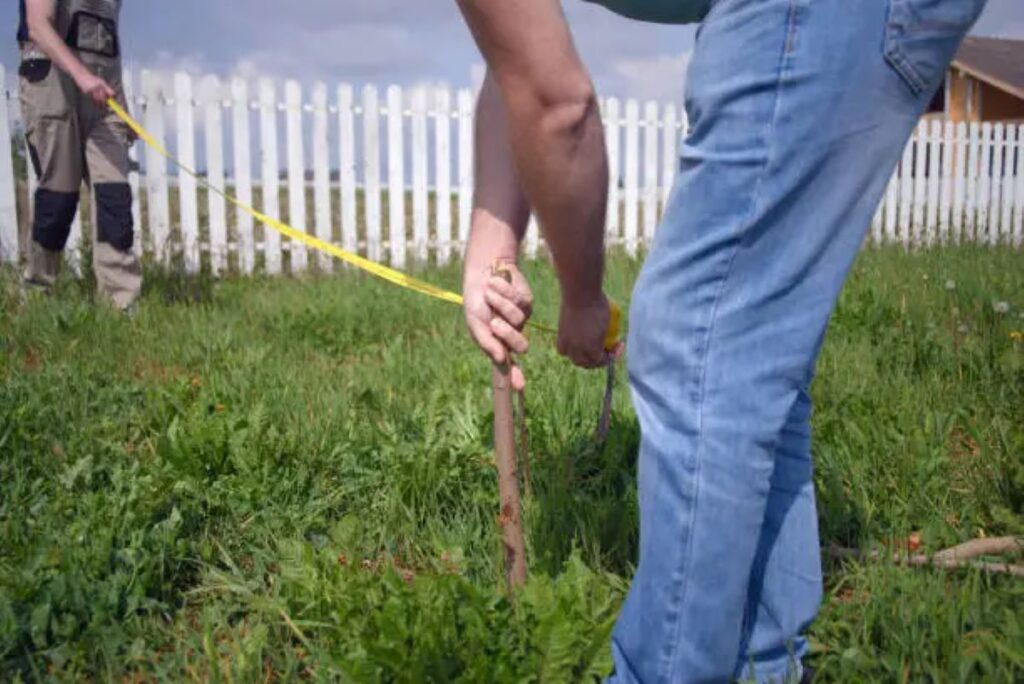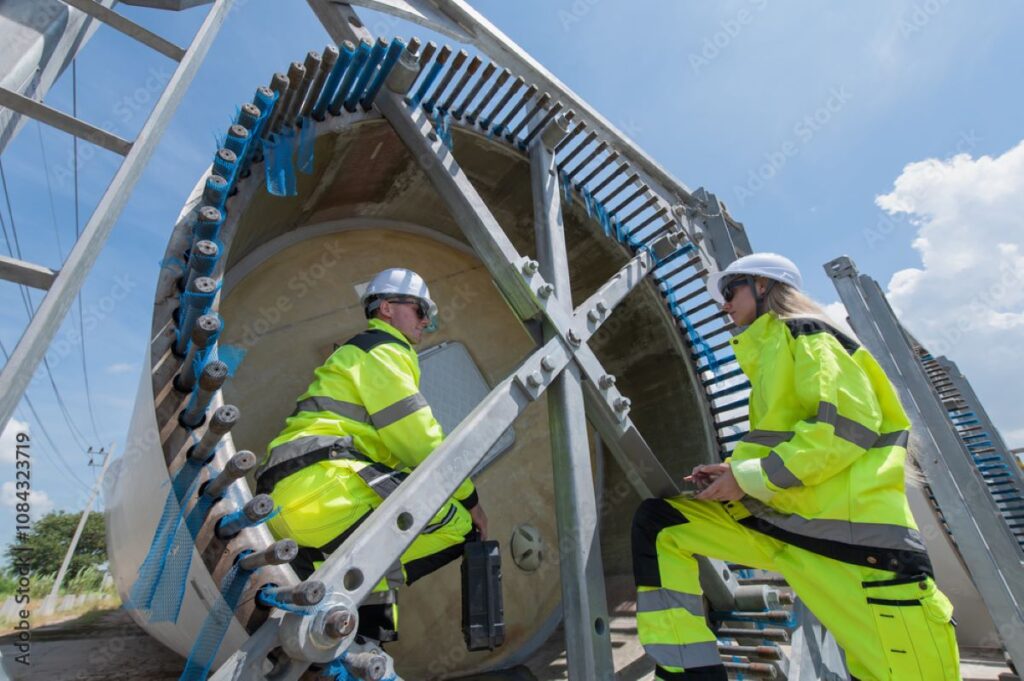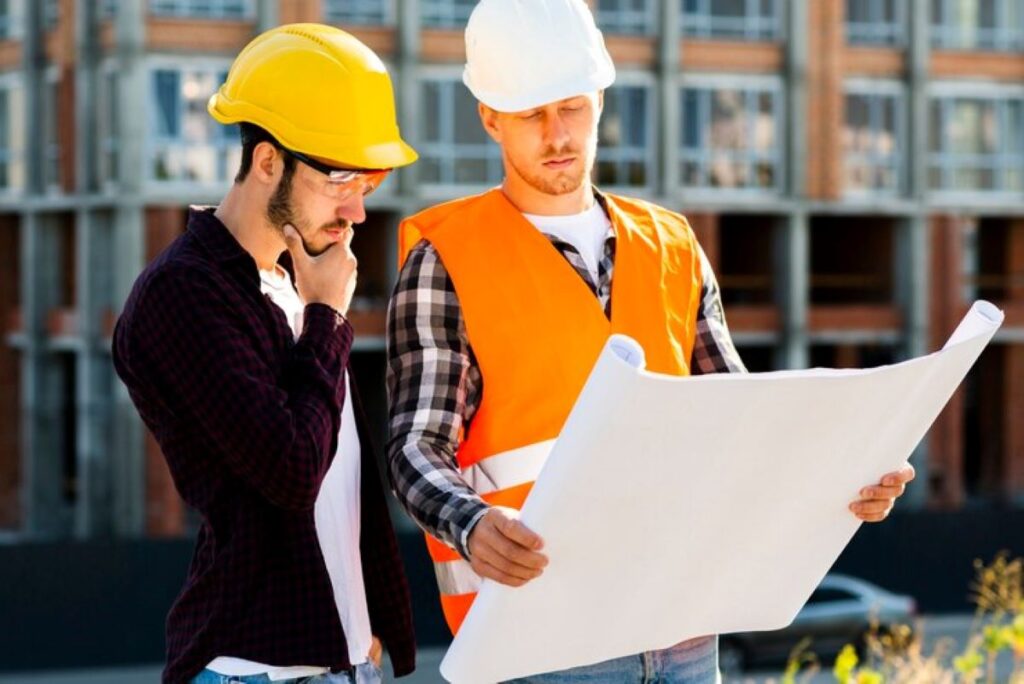In the realm of land development, precise planning and execution are crucial for ensuring a successful outcome. One key player in this process is the subdivision surveyor, who plays an essential role in facilitating this intricate task. This article delves into their importance, benefits, processes involved in their work, and the factors you should consider when hiring one.
Understanding the role of a subdivision surveyor
A subdivision surveyor is a licensed professional who specialises in measuring and mapping plots of land for development. Their expertise is instrumental in turning a piece of land into a subdivided area that can support various uses, including residential, commercial, or industrial projects.
Subdivision surveyors are responsible for a range of tasks, including setting the boundaries of properties and ensuring that all plans meet local regulations. Their insights not only aid in the physical demarcation of land but also provide valuable knowledge about the terrain and any legal implications that might arise during the development process.
The importance of accurate land measurement
Accurate land measurement is the cornerstone of any successful land development project. Miscalculations can lead to severe repercussions, including boundary disputes with neighbours or violations of zoning laws. These issues can not only delay the project but can also incur substantial financial losses.
By employing a subdivision surveyor, developers can be assured that their measurements are precise, utilising advanced tools and technology for the task. This accuracy helps create a solid foundation upon which all further planning and construction can take place.
The expertise of a subdivision surveyor
Subdivision surveyors bring a wealth of knowledge and technical skills to the table. They are trained to navigate the complexities of land development, offering insights into the topography, geology, and environmental considerations that may affect a project.
Additionally, their familiarity with local laws and regulations is invaluable. They can help developers understand zoning restrictions, easements, and land use provisions that are critical to moving forward legally and effectively.
Moreover, subdivision surveyors often collaborate with other professionals, such as urban planners, architects, and civil engineers, to ensure that all aspects of a project are harmoniously integrated. Their role is not limited to just the initial stages of surveying; they may also be involved in the ongoing monitoring of a site to ensure compliance with the approved plans and regulations. This collaborative approach not only enhances the quality of the development but also fosters a sense of community by ensuring that projects align with the broader vision for the area.
Furthermore, subdivision surveyors are adept at using Geographic Information Systems (GIS) technology, which allows them to analyse spatial data and create detailed maps that can inform decision-making processes. This technology can reveal patterns and trends that may not be immediately apparent, enabling developers to make informed choices about land use and resource allocation. As urban areas continue to grow and evolve, the role of subdivision surveyors becomes increasingly vital in shaping sustainable and functional communities.
The benefits of hiring a professional surveyor for your project
Engaging a professional subdivision surveyor not only simplifies the land development process but also opens up various benefits that can enhance project outcomes. From compliance with regulations to saving money, their role is indispensable.
Ensuring compliance with local regulations
One of the primary advantages of hiring a subdivision surveyor is their expertise in navigating local regulations. Each region may have different stipulations regarding land use, subdivision parameters, and development approvals.
A knowledgeable surveyor can guide you through these regulations, ensuring that all the necessary permissions are in place before development begins. This preventive approach helps to avoid legal disputes and fines that could stall or derail your project. Furthermore, their familiarity with local authorities and planning departments can facilitate smoother communication, making it easier to address any concerns that may arise during the approval process.
Avoiding costly mistakes in land development
Land development is a significant investment, and mistakes can be incredibly costly. Errors in property lines, miscalculations, and a lack of regulatory compliance can lead to financial implications that may extend beyond immediate fixes.
By employing a subdivision surveyor, you can mitigate the risk of such errors. Their precise measurements and in-depth understanding of the development process can safeguard your investment, ensuring that the project runs smoothly from inception to completion. Additionally, a professional surveyor can provide invaluable insights into the topography and soil conditions of the land, which can influence design decisions and construction methods. This knowledge not only enhances the feasibility of your project but can also lead to innovative solutions that maximise the land’s potential while adhering to budgetary constraints.

The process of land subdivision surveying
The surveying process is a systematic procedure aimed at developing land for various uses. It involves several steps, each designed to build upon the previous one and culminate in a thorough subdivision plan that meets both the developer’s needs and regulatory requirements.
Initial land assessment
The first step in the surveying process involves thorough land assessment. This entails examining the physical characteristics of the land, including its topography, soil types, and any natural features, such as bodies of water or existing vegetation.
During this phase, the surveyor will also consider existing boundaries and any encroachments or easements that may impact the development. This information serves as the foundation for determining how the land can be best subdivided for intended use.
Moreover, the initial assessment often includes an analysis of the land’s historical usage and any potential environmental concerns. For instance, if the land has previously been used for agricultural purposes, the surveyor may need to evaluate soil contamination or drainage issues that could affect future development. Additionally, understanding the ecological significance of certain areas, such as habitats for local wildlife, is crucial in ensuring that the development is sustainable and compliant with environmental regulations.
Detailed site surveying
Following the initial assessment, a detailed site survey is undertaken. This phase includes measuring the exact boundaries of the property and mapping all relevant features with precision.
Utilising cutting-edge technology, such as GPS and CAD software, the surveyor creates comprehensive plans that identify specific locations for roads, utilities, and plots. This meticulous approach ensures that every detail is accounted for before formal applications for subdivision are submitted to local authorities.
In addition to technological tools, the surveyor may also employ traditional methods, such as the use of total stations and theodolites, to ensure accuracy in measurements. This combination of modern and conventional techniques allows for a more robust understanding of the land’s layout. Furthermore, the surveyor may engage with local stakeholders during this phase, gathering input from community members and local businesses to address potential concerns and incorporate their feedback into the planning process.
Finalising the subdivision plan
Once the detailed surveying is complete, the next step is to finalise the subdivision plan. This document consolidates all the findings and is typically submitted for approval to the relevant governing bodies.
The final plan will represent not just the physical layout of the subdivided properties but will also include compliance measures, ensuring that all local regulations and zoning laws are met. Upon approval, the plan allows developers to proceed with construction, turning their vision into reality.
Additionally, the finalisation of the subdivision plan may involve public consultations, where community members can review the proposed changes and voice their opinions. This engagement is vital in fostering a sense of community ownership and can lead to modifications that enhance the overall development. Furthermore, the plan must also address infrastructure considerations, such as access to public transport, waste management systems, and green spaces, ensuring that the new subdivision integrates seamlessly into the existing urban landscape. Check out more about Boundary Identification Survey, and When Do You Need One?
Factors to consider when hiring a subdivision surveyor
Choosing the right subdivision surveyor can significantly influence the outcome of your land development project. Several factors should be considered to ensure you select a professional who aligns with your needs and expectations.
Qualifications and experience
First and foremost, it’s essential to evaluate the qualifications and experience of potential surveyors. Look for professionals who hold the necessary certifications and licences to operate in your region and have a proven track record of successful projects.
Experience in similar projects can indicate their familiarity with the specific challenges that may arise, making them better equipped to handle unforeseen circumstances effectively.
Understanding of local land laws
A deep understanding of local land laws is non-negotiable for a subdivision surveyor. Laws can vary significantly even within a region, making local expertise invaluable.
Assess the surveyor’s knowledge of zoning regulations, easements, and environmental laws that may affect your project. This understanding can be crucial, particularly if your land development involves navigating complex legal requirements.
Cost and value for money
Lastly, consider the cost of hiring a subdivision surveyor in relation to the value they bring. While it’s essential to stay within budget, opting for the cheapest option may result in a lack of quality or attention to detail.
Instead, focus on the overall value the surveyor offers. A slightly higher investment can yield massive benefits in terms of accurate measurements, compliance, and ultimately, the success of your land development project.

The impact of subdivision surveying on land development
The role of subdivision surveying extends beyond the immediate tasks involved. It has a lasting impact on the land development process as a whole, influencing property values, land use efficiency, and sustainability. Let’s visit https://nt.gov.au/property/land-planning-and-development to get a detail guide about land development.
Enhancing the value of your property
One of the most evident impacts of subdivision surveying is its potential to enhance property value. By ensuring that the development is conducted correctly from the start, property owners can maximise the return on their investment.
Properly subdivided land that adheres to local regulations is often more attractive to prospective buyers, contributing to a better market value. This increases the potential for sales and development opportunities in the future.
Facilitating efficient land use
Subdivision surveying also plays a critical role in facilitating efficient land use. The methods and planning undertaken by surveyors ensure that every inch of land is utilised effectively, avoiding waste and promoting smart development practices.
This efficiency is particularly important in urban environments, where land is often at a premium. Thoughtfully subdivided land can lead to well-planned communities, enhancing livability and accessibility.
Ensuring sustainable development
Finally, subdivision surveying contributes to sustainable development practices. By carefully assessing environmental factors and promoting responsible land use, surveyors help in developing projects that respect natural resources.
In this way, subdivision surveying not only addresses current needs but also considers long-term implications, promoting the sustainable development of real estate projects that will benefit future generations.
In conclusion, hiring a subdivision surveyor for your land development project is a wise investment. Their expertise in accurate measurements, regulatory compliance, and careful planning can significantly enhance both the process and the final outcome of your developments.

